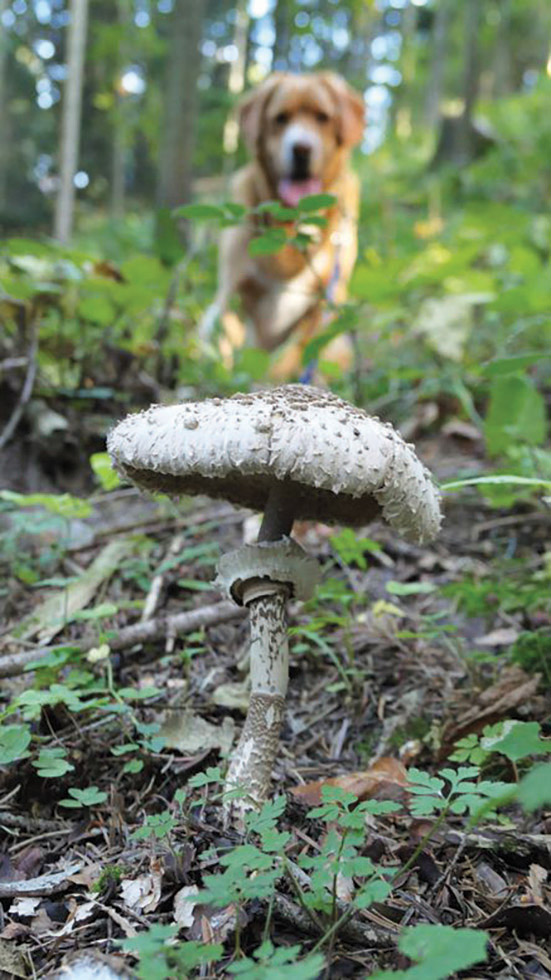By Kellie Tickner, Orchard Hills Veterinary Hospital Administrator
WITH the recent rains, we begin to see an increase in the number of pets ingesting wild mushrooms. Australia and New Zealand are home to over 10,000 mushroom species and whilst only a small percentage of these are known to be poisonous, all mushroom ingestions should be regarded as potentially life-threatening until proven otherwise.
What can happen if a toxic mushroom is eaten?
This depends on the type of mushroom and the amount that is eaten. Symptoms can happen anywhere from 2-24 hours and may include:
• Vomiting and diarrhoea, which can lead to dehydration and electrolyte imbalances in your pet. Other common symptoms include abdominal pain, weakness, lethargy, salivation or seizures.
• Liver failure may occur after ingesting some species of mushrooms. Direct damage of the liver will lead to vomiting, pain, yellowing of the whites of the eyes, the gums and skin due to a liver that isn’t working properly, and sadly, can result in fatality.
How can I protect my dog from toxic mushrooms?
Prevention is far better than cure. Treat all mushrooms that you see as potentially toxic and don’t let them eat any! Remove any mushrooms from your yard immediately and do not walk your dog where mushrooms grow to reduce the risk that one gets eaten.
What happens if I suspect my dog has eaten a mushroom?
Don’t delay, head straight to your local Veterinarian for immediate management. Take the mushroom with you if handy- it may need to be identified.
Mushroom ingestion can cause a range of symptoms depending on the species and toxin involved. Whilst many mushroom ingestions result in either no symptoms or purely a gastroenteritis like syndrome, some mushroom ingestions such as Amanita phalloides (commonly known as the Death cap) can be life-threatening even with small amounts.
As we are seeing mushrooms popping up all over our sodden lawns, please be cautious by keeping your pets on a leash whilst walking them. Where possible, remove any mushrooms from your yard before your pet has a chance to play with or eat them.
If your pet eats any wild growing mushrooms, please contact your local Veterinarian for treatment.






